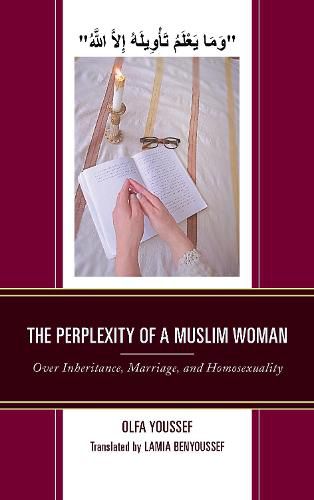Readings Newsletter
Become a Readings Member to make your shopping experience even easier.
Sign in or sign up for free!
You’re not far away from qualifying for FREE standard shipping within Australia
You’ve qualified for FREE standard shipping within Australia
The cart is loading…






Using the methodology of modern scholars in the fields of Arabic lexicography, linguistics, and psychoanalysis, Tunisian feminist scholar Olfa Youssef investigates the rulings about inheritance, marriage, and homosexuality in the Qur'anic text itself and compares them with the interpretations provided by male Muslim theologians and legal scholars from medieval times to the present. In this book, she makes five central arguments: (1) There is a discrepancy between the layered signification in the Qur'anic text itself and the sutured explanations by religious scholars which have been enacted into law in many Muslim countries today; (2) the plurality of meanings is the quintessential essence of the Qur'an as evidenced in the absence of any sura over which there was unanimous agreement among Muslim scholars; (3) when male privilege was at stake, male legal scholars, to protect their own interests, ignored the divine text and based their rulings on human consensus; (4) Muslim medieval views on gender and homosexuality were more tolerant than contemporary ones; and finally (5), preferring indetermination and perplexity over the finality and certainties found in the judgements of male theologians, Youssef argues that only God knows the Qur'an’s true meaning. Her job as a Muslim female scholar is only to raise questions over those human interpretations that many Muslim societies mistake for divine will.
$9.00 standard shipping within Australia
FREE standard shipping within Australia for orders over $100.00
Express & International shipping calculated at checkout
Using the methodology of modern scholars in the fields of Arabic lexicography, linguistics, and psychoanalysis, Tunisian feminist scholar Olfa Youssef investigates the rulings about inheritance, marriage, and homosexuality in the Qur'anic text itself and compares them with the interpretations provided by male Muslim theologians and legal scholars from medieval times to the present. In this book, she makes five central arguments: (1) There is a discrepancy between the layered signification in the Qur'anic text itself and the sutured explanations by religious scholars which have been enacted into law in many Muslim countries today; (2) the plurality of meanings is the quintessential essence of the Qur'an as evidenced in the absence of any sura over which there was unanimous agreement among Muslim scholars; (3) when male privilege was at stake, male legal scholars, to protect their own interests, ignored the divine text and based their rulings on human consensus; (4) Muslim medieval views on gender and homosexuality were more tolerant than contemporary ones; and finally (5), preferring indetermination and perplexity over the finality and certainties found in the judgements of male theologians, Youssef argues that only God knows the Qur'an’s true meaning. Her job as a Muslim female scholar is only to raise questions over those human interpretations that many Muslim societies mistake for divine will.